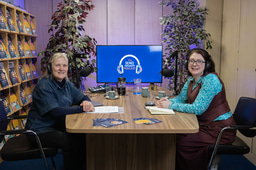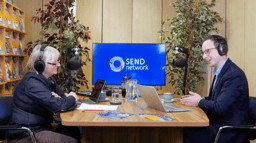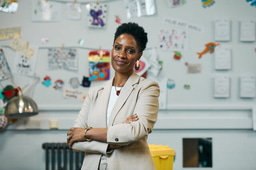Top tips to get everyone reading

If you know me or have attended any of my training sessions, you will know I advocate the importance of seeing all learners as readers, in the widest sense. Once we establish this as a foundation, we can start with the process of ensuring every learner has access to an engaging, meaningful, and motivating reading curriculum that is personalised to their needs! So how do we do this and where do we begin?
I recently read a quote on the Talk Sense website that used the analogy of winning the lottery when referring to the importance of teaching emergent literacy skills. They state that if we never make any attempt, by definition, a person has no chance of gaining such skills. How do you win the lottery? You purchase a ticket! Sure, there is a remote chance but if you never purchase a ticket, you definitely will not win.
Tip #1 - Start with what they love! Begin with learners interests, motivators and strengths
Do they love dinosaurs, trains, food, computer games, pop stars, history, wheels or places? Use these alongside whatever approach works, dependent on need this could be whole words, phonics, symbols, objects, technology based approaches embedded in meaningful rich literacy experiences. Check out
https://www.teachustoo.org.uk/reading-resources
https://www.literacyshed.com/thestepdad.html
https://clpe.org.uk/books/power-of-pictures
https://www.listening-books.org.uk/
Tip #2 - Use successes and confidence gained to develop all aspects of the reading process
Build on and celebrate skills demonstrated. Create displays to tell others how we read in our class, create collection of own authored books, books we love, build up banks of words or sounds known and share these. Ensure we are all clear about the processes involved in learning to read and why access to literacy is key for all learners. Use these successes to build on learners skills and develop reading, ensure we understand how reading develops and share with all. Make phonics a part of this, teach learners about the sounds in language. Ensure that we provide opportunities to manipulate, play and model blending, segmenting and more!
https://literacyforallab.ca/wp-content/uploads/2016/07/emerging_literacy_behaviours_checklist.pdf
Tip #3 - Make it personal, use photos, personal stories and experiences to bring literacy to life
Explore some of the ideas here!
https://www.callscotland.org.uk/downloads/posters-and-leaflets/
https://www.pinterest.co.uk/pin/395331673551492737/
https://literacyforallinstruction.ca/access-to-books/
Tip #4 - Make sure that we are all seen as readers.
Read every day – make this part of your daily routine, ensuring that the text is language rich, fun, and engaging, with opportunities for participation and movement. Sharing our own likes and dislikes, linking with the home environment to find out more from everybody (this includes all of the staff that work within the classroom).
Tip #5 - Be clear of our purpose, ensuring everyone has the opportunity to enhance their understanding of the world around them!
Share the impact that increased literacy engagement has had on outcomes for all learners (record and share using photos, videos of practice and examples of joy demonstrated by learners). Use this to support, coach and develop the knowledge of the whole community including our parents and carers. Make sure this is all based on the science of how reading develops.
Read this:
www.phonicsforpupilswithspecialeducationalneeds.com/post/the-one-about-reading-in-special-schools
https://acrobat.adobe.com/id/urn:aaid:sc:EU:e6316de6-d1bf-437b-b51a-5137d3ec8587
--------
Find out more about my work here and order my new book, Teaching Reading to All Learners Including Those with Complex Needs - A Framework for Progression within an Inclusive Reading Curriculum here.






Please sign in or register for FREE
If you are a registered user on SEND Network, please sign in